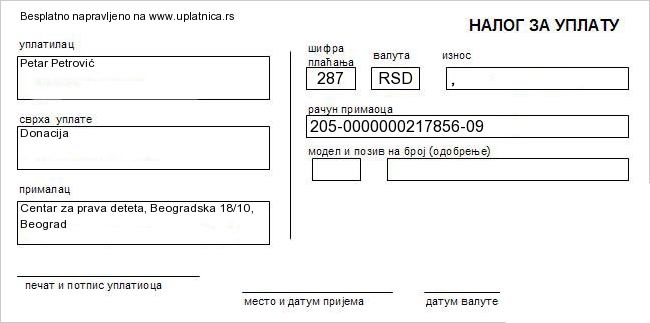
The project aims to contribute to providing for sustainability of the initiated access to justice for children system reforms by strengthening legislative and institutional framework and capacities of relevant professionals. Specific areas that will be tackled in this programme cycle are related to improved implementation of diversionary measures for child offenders and mainstreaming protection measures for victims and/or witnesses of crime.
The Convention explicitly recognizes a child as a human rights bearer entitled to all human rights laid down by the Convention and other international human rights instruments relevant to children. For the rights to be meaningful, children must have equitable access to justice. Access to justice implies a multi-disciplinary approach and existence of a child-friendly justice system which works in the best interests of the child, protects children and ensures their meaningful participation in the process and decision making affecting them. However, even though core principles on child-friendly justice have been to a significant extent translated into Serbian national legislation, its principles and procedures are not adequately implemented in practice.
The area of access to justice for children has been given particular importance in the content of the EU accession process. The Action plan for chapter 23, adopted by the Government of Serbia in 2016 and revised in 2020, contains a number of activities and timeframe necessary for the improvement of the rights of the child in the justice system in particular in relation to implementation of diversionary measures for child offenders, introduction of protection measures for victims and/or witnesses of crime and strengthening the work of the Juvenile Justice Council (JJ Council) as multidisciplinary body with a strong potential to initiate and monitor justice reform.
Within the framework of the project, the Center is preparing two reports that focus on the specific needs and vulnerabilities of children in the criminal justice system, with a particular emphasis on gender equality.
The Report on the implementation of diversion measures from 2017 to 2021 will encompass data collection and analysis of administrative data, as well as qualitative research with key stakeholders. The report will involve the participation of the Council for Monitoring and Improving the Work of Juvenile Criminal Justice and Sanction Execution Authorities, the Republic Statistical Office, and the Republic Institute for Social Protection. Data on children in conflict with the law will be analyzed, including types of offenses, decisions made, age, gender, ethnic affiliation, and regions/locations. Relevant documents will also be reviewed, and the availability of local teams for juvenile justice and service providers will be assessed, considering the number and types of diversion measure protocols that are signed and implemented. It will also analyze security measures such as mandatory psychiatric treatment and placement in medical facilities, mandatory outpatient psychiatric treatment, and mandatory treatment for alcoholism and drug addiction. Finally, the report will include the perspectives of key stakeholders, including successful examples and challenges in the implementation of diversion measures, as well as the perspectives of boys and girls in conflict with the law.
The second report will focus on analyzing the deficiencies and opportunities in the system/institutions, regulations, and capacities for the protection of victims/witnesses, providing information for further medium-term and long-term interventions relevant to advocacy, partnerships with other organizations, technical support, and/or capacity development. In collaboration with the Council for Monitoring and Improving the Work of Juvenile Criminal Justice and Sanction Execution Authorities, to contribute to the establishment of a comprehensive system for the protection of victims/witnesses of criminal offenses in accordance with the National Strategy on the Rights of Victims and Witnesses of Criminal Offenses in Serbia (2020-2025) and the corresponding Action Plan, the Center will conduct research on the current state with appropriate recommendations regarding the political/institutional and regulatory framework, the availability of services in Serbia that provide protection and support to boys and girls who are victims and/or witnesses of criminal offenses, capacity development needs and resources, and mapping of other significant actors, programs, and initiatives. The research will provide an overview of existing capacities throughout the country and clearly indicate areas where the system needs strengthening.
The project is implementing with the financial support and in partnership with the UNICEF Office in Serbia in the period from June 2023 to December 2024.
